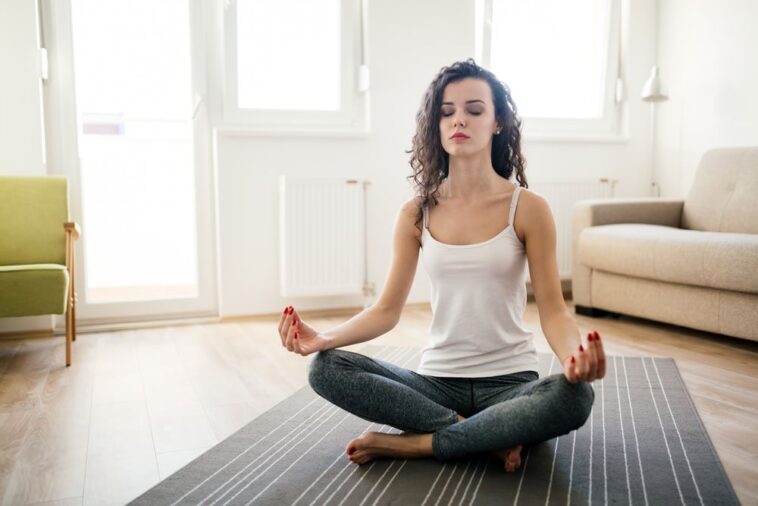How to Practice Meditation
So what exactly do you do during meditation? While there are many different forms of meditation and ways to practice, learning a basic meditation for beginners is a great place to begin, Here are given How to Practice Meditation:
- Select a distraction-free, peaceful location to study. Turn off your phone, television, and any other sources of distraction. If you wish to play soft music, choose something soothing and repetitive.
- Set a time limit. If you are just starting started, you may want to limit your sessions to between 5 and 10 minutes.
- Attend to your body and make yourself comfortable. You may rest cross-legged on the floor or in a chair as long as you feel comfortable sitting for several minutes.
Concentrate on your respiration. Try taking belly-expanding breaths and then exhaling slowly. Pay focus to the sensation of each inhalation.
- Observe your ideas. The purpose of meditation is not to cleanse the mind; your thoughts will wander regardless. Instead, focus on gradually returning your attention to your respiration whenever you become aware of your mind wandering. Don’t judge or analyze your thoughts; instead, bring your attention back to your steady breathing.
Impact of Meditation
Consciousness is frequently compared to a stream, altering and transforming as it flows across the landscape. Meditation is one method for consciously altering this stream and, consequently, altering how you perceive and respond to the world.
Meditation can have physiological and psychological effects, according to research. Positive physiological effects include a decreased state of physical arousal, decreased respiration rate, decreased pulse rate, altered brain wave patterns, and decreased tension.
Some of the other psychological, emotional, and health-related benefits of meditation include:
- Better management of symptoms related to anxiety disorders, depression, sleep disorders, pain issues, and high blood pressure
- Better stress management skills
- Changes in different aspects of attention and mindfulness
- Increased self-awareness
- Improved emotional well-being
- Improved working memory and fluid intelligence
- Improved immunity
- Greater empathy for yourself and others
- Headache relief
What Does Meditation Do to the Brain?
In addition to alleviating anxiety and tension, there is evidence that meditation has a profound impact on the brain. Using brain imaging techniques, researchers have discovered that regular meditation alters the structure of the brain.
In one study, eight weeks of mindfulness-based stress reduction (MBSR) was associated with an increase in the volume of the hippocampus, a structure associated with affective regulation and memory. It was also associated with decreased amygdala volume, a structure involved in anxiety, fear, and stress.
In addition, research has linked meditation to increased brain connectivity, which may enhance brain plasticity.
Also read: How Meditation Impacts Your Mind and Body
Tips for Meditating
If you are interested in meditating, the following advice will assist you in beginning a productive practice.
- Begin slowly. Start with short sessions of approximately 5 to 10 minutes per day and gradually build up to extended sessions.
- Create a timeline. Try meditating at the same time every day, for instance for a few minutes first thing in the morning.
- Get comfortable. Cross-legged sitting on the floor is an option, but comfort is paramount. You must be able to remain comfortably for several minutes without becoming uneasy, rigid, or restless.
- Concentrate on your feelings. Observe the sentiments and sensations you experience as you breathe in and out spontaneously.
- Don’t suppress your emotions. While meditating, your mind will inevitably wander, which can sometimes lead to unsettling or even distressing thoughts and emotions. The purpose is not to eliminate such notions from your psyche. Instead, you should focus on acknowledging these thoughts without condemning them and then guiding your attention back to your respiration.



/arc-anglerfish-arc2-prod-dmn.s3.amazonaws.com/public/U3MDID7KAX2FIMP4VWO7IC3HUU.jpg)

